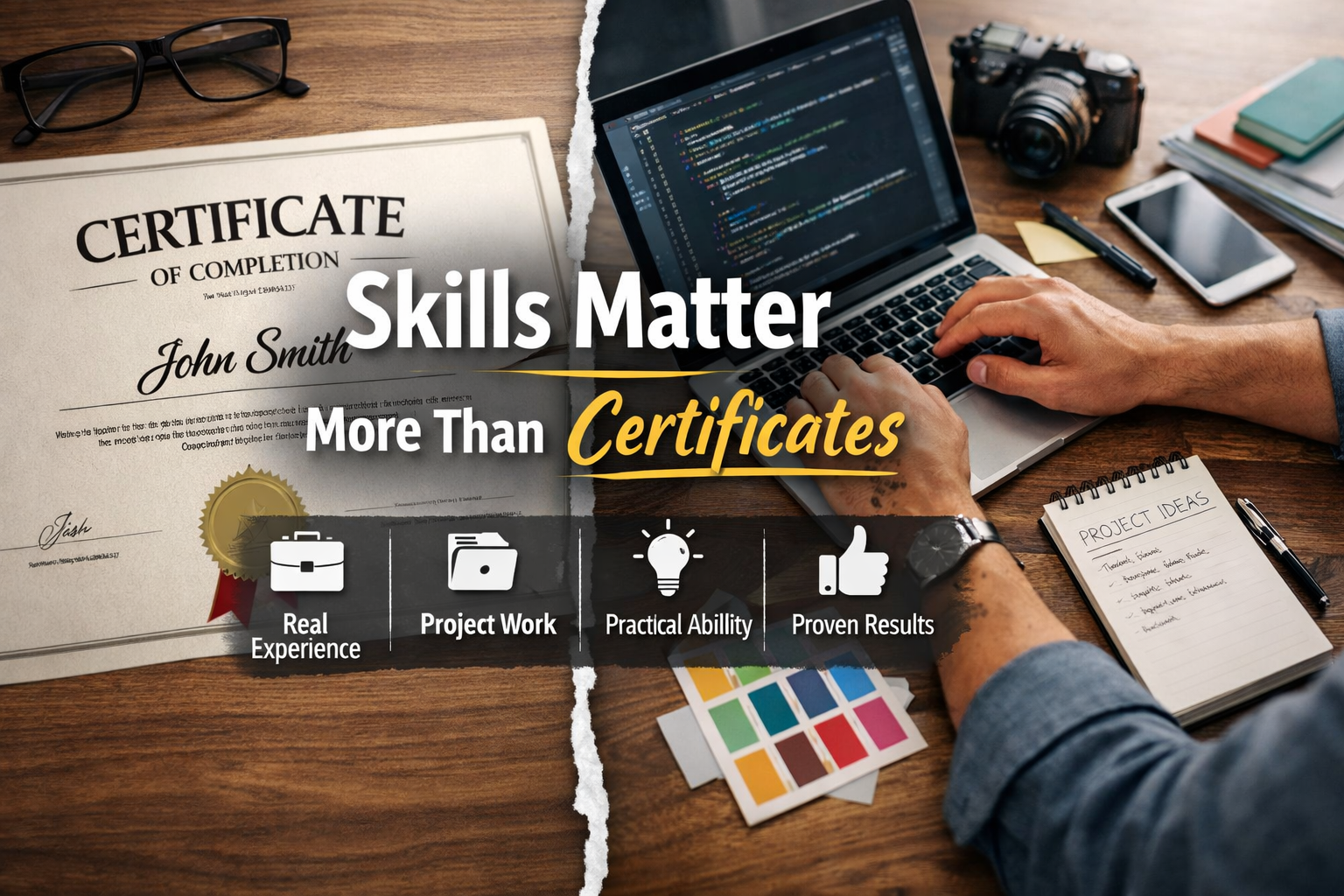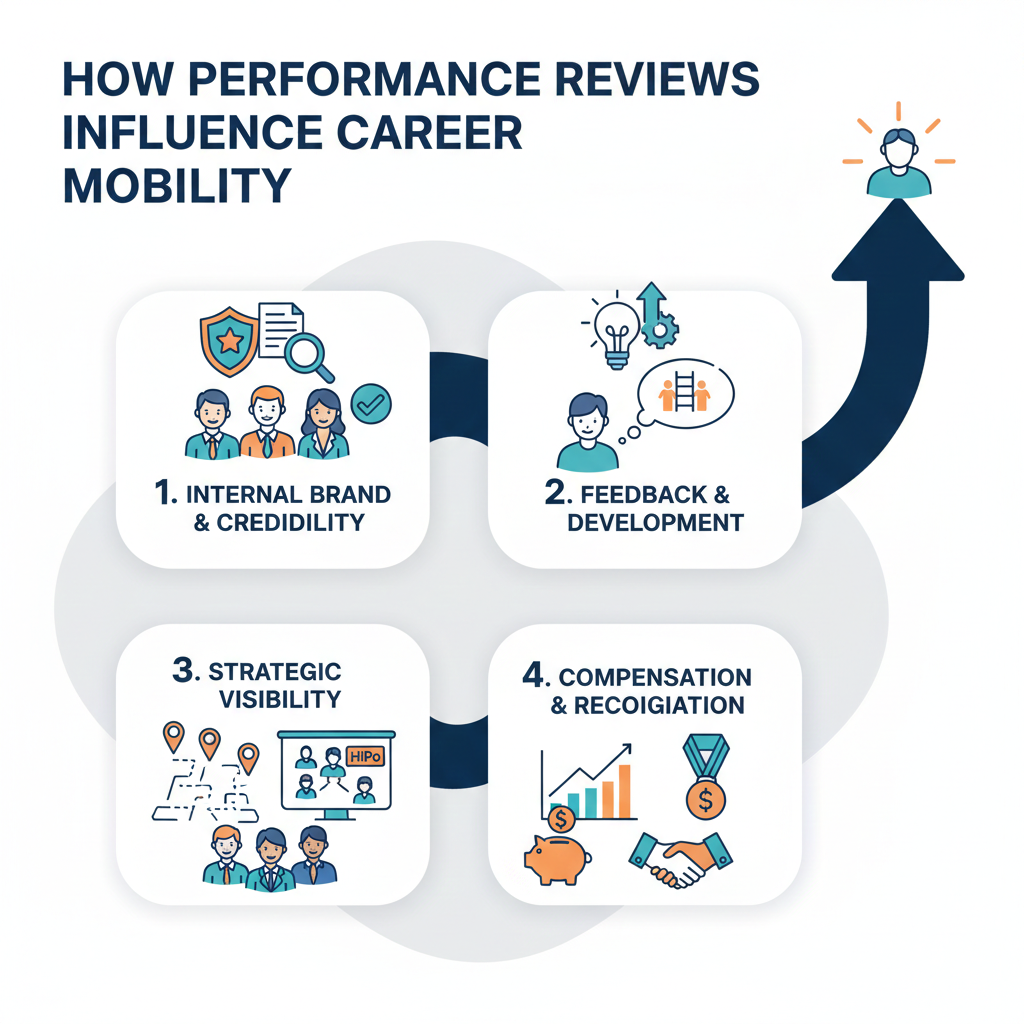Introduction
We have created a very helpful and informative article for young professionals.
As we all know, building a career is not a single step — it involves multiple stages, and we need to take each step carefully to build a successful professional journey.
Many times, young professionals make several career mistakes that harm their growth and leave them stuck, mainly because they lack proper guidance.
This article serves as a guide for everyone who is in the process of building their career.
For a brief version of this post, click here.
Career Mistakes Young Professionals Should Avoid
1. Young Professionals Ignoring Skill Development
The big mistake in today’s time is ignoring skill development. Everyone focuses more on a degree because they think their career is set if they get a good degree. But this is not a reality because a degree is just an entry ticket, the main work is of skills and experience.
If you want to build your career, then you should learn practical and updated skills such as the use of digital tools, improving communication skills, and developing leadership qualities. All these skills make you a confident and capable professional.
Today’s job market is a fast one. New tools, software, and technology are introduced every month. If you do not update your skills then you will be outdated easily. That’s why learning new skills and improving older ones is a necessity in today’s time.
Now recruiters prefer those candidates who have a learning attitude. The people who are ready to understand, adapt, and grow with new trends get more opportunities.
That’s why if you want to make your career strong in long-term, then do not stop yourself from learning. Regularly take new courses, attend workshops, and make a habit of self learning.
2. Young Professionals Not Setting Career Goals
In today’s time, many young professionals start their careers without clear goals. They just know that they want a job but they do not know the direction, what to achieve, or how to grow.
Setting career goals is important because clarity gives direction. When you know in which field you have to go, at what position you want to reach, and what efforts you need then only you can shape your career confidently.
You need to divide your goals into two parts one short-term and another long-term;
- Short-term goals
Short-term goals are the goals that can be achieved in a year such as learning a specific skill, doing an internship, or completing a certification.
- Long-term goals
Long-term goals are the goals that can be completed within 5 to 10 years such as reaching a leadership position, starting a business, or creating a strong personal brand.
If you do not have this clarity then you can feel confused and dissatisfied easily. That’s why set your goals in starting. Understand your interests and strengths and create a career road map on the basis of that. When you have a clear goal then your decisions will be smarter and your career growth will also be consistent.
3. Poor Communication Skills of Young Professionals
Communication skill is the backbone of the career of every professional. But many young professionals make mistake in this area because either they are unable to express their thought clearly or they fear speaking.
Common mistake like writing a clear email, avoiding teamwork, or not sharing your opinion in a meeting makes your image weak. When we do not communicate clearly then misunderstandings are created.
Good communication is not limited to speaking or writing. It is an art which includes listening, understanding, and expressing. When you share your thoughts confidently and respectfully then people trust you. These trust opens growth opportunities for you like leadership roles, client handling, and decision-making positions.
A strong communicator is always valued in the team. If you can express your ideas clearly and understand others ‘ viewpoints then you can become a balanced and effective professional.
That’s why if you think your communication is weak then start practicing,. Improve your English, learn the correct style of writing emails, and make a habit of speaking in meetings. Good communication is a superpower that helps you to build your career.
4. Young Professionals Neglecting Networking
In today’s professional world, networking is a hidden power but many young professionals ignore it. They think that if they just do their work efficiently they will get opportunities on their own, but the reality is that connections are also an important part of career growth.
Networking doesn’t mean meeting people only, it means building genuine professional relationships. When you connect with the right people in the early stage of your career like mentors, seniors, recruiters, or industry experts then you get knowledge guidance and hidden opportunities that are not available in books or internet.
In today’s digital age, LinkedIn is the best platform for networking. There you can connect with people of your interest engage with their posts and share your work to increase visibility. Also attending career events webinars and workshops is a great way to create real connections
The common mistake that people make is that they connect only at the time of need like a job referral or recommendation. This approach creates a bad impression. Networking is a long-term investment in which you need to build relationships first, then only you can get support naturally.
That’s why do not create a network for ‘use’ only, instead create to add value. Do genuine comments on the post, celebrate their achievements, and try to become helpful. When you connect sincerely then your network becomes a strong career support system for you.
5. Job Hopping Too Often
In today’s time, there’s a common trend of frequent job changes among young professionals. If they feel little dissatisfaction or boredom, then they immediately start to search for the next job. But this habit harms your career image in the long term.
When you change jobs multiple times, then employers think that you are unstable or non-committed. This impression affects your future job opportunities whether your skills are strong.
Every job is a learning experience. When you stick to a position then you get chance to develop skills in deep learning, patients, and problem-solving. These qualities are a must for a successful professional.
That’s why think before evaluating every opportunity – is it align with your long-term goals or not. If your answer is yes then give your best and show consistency.
6. Young Professionals Ignore Feedback and Mentorship
Many young professionals ignore feedback in their starting phase. When a boss or a senior gives some suggestions then people think that as criticism. But actually, constructive feedback is a shortcut to growth.
If you take feedback positively then you can identify your mistakes quickly and improve them. This habit makes you better in every role. People who accept their weaknesses and work on them become successful and confident in their careers.
Also having a mentor is very valuable. A mentor is a person who guides with their experience whether taking the right career decisions handling office politics or building self confidence. You can avoid those mistakes that can harm your career through their guidance.
That’s why you should not avoid feedback instead make it the tool for your improvement. Also, find a mentor in your professional circle which can give you honest advice.
7. Failing to Maintain a Personal Brand
Nowadays young professionals just chase salary. When we start our career then we think that more money means more success. But reality is that learning and growth are more important than money.
If you choose a job only based on salary then maybe you will stay happy in the short term, but face burnout and dissatisfaction in the long term. When your focus is only on earning then you ignore your skill building and self-development.
You should focus on learning and gaining experience in the early years of your career. If you have strong skills and experience then you can earn more money easily, but if you switch jobs just for a salary then you will not get satisfaction in the long term.
That’s why give priority to learning in your early career years.
8. Young Professionals Not Balancing Work-Life
Workload has increased so much in modern warfare because companies expect more productivity and efficiency. Competition is high, deadlines are tight, and there is an expectation of multitasking with every employee. Besides all these, there is another pressure to always perform better; this expectation creates mental and physical stress on employees. Many people work overtime for their career growth, but it affects their health, sleep, and personal life. When the workload is higher, employees have to compromise his or her personal time, and the work-life balance gets disturbed because of this. The solution to this problem is setting realistic goals, working on priorities based, and using time management techniques to stay productive and secure personal time.
Conclusion
This article highlighted some of the most common career mistakes young professionals make, such as ignoring skill development, not setting clear goals, poor communication, neglecting networking, changing jobs too often, avoiding feedback or mentorship, and focusing only on salary.
Each of these points was discussed with practical examples and tips to help you build awareness, improve your approach, and make smarter career decisions. By understanding and avoiding these mistakes, you can save years of struggle, develop the right mindset, and create a stable, growth-oriented career path.
If you want to explore more about jobs then you can visit Best Job Tools. The blogs of the platform will guide you to build your career in various filed.







Leave a Reply